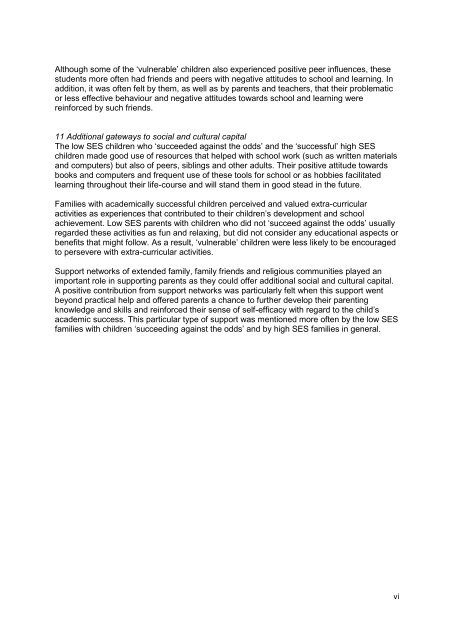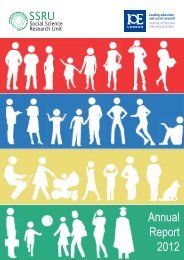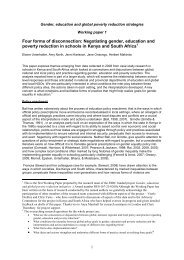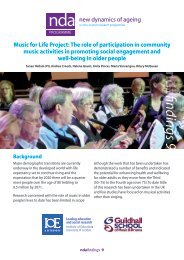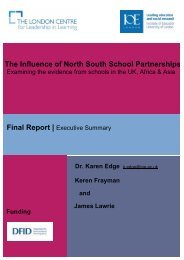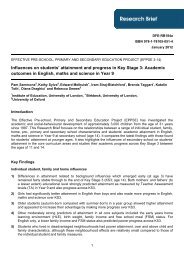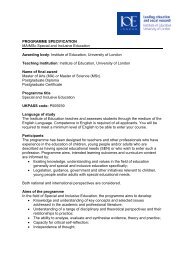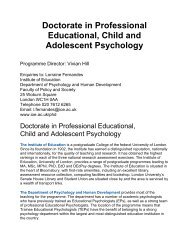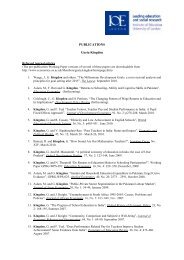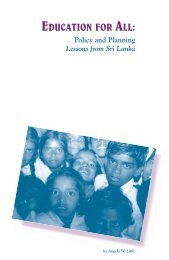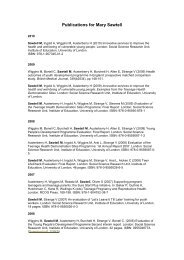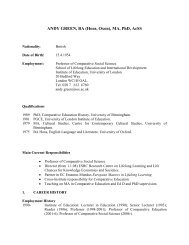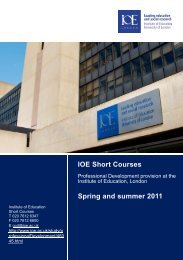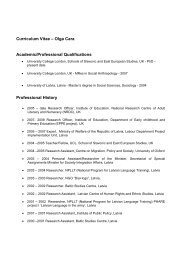Research report - Institute of Education, University of London
Research report - Institute of Education, University of London
Research report - Institute of Education, University of London
You also want an ePaper? Increase the reach of your titles
YUMPU automatically turns print PDFs into web optimized ePapers that Google loves.
Although some <strong>of</strong> the „vulnerable‟ children also experienced positive peer influences, these<br />
students more <strong>of</strong>ten had friends and peers with negative attitudes to school and learning. In<br />
addition, it was <strong>of</strong>ten felt by them, as well as by parents and teachers, that their problematic<br />
or less effective behaviour and negative attitudes towards school and learning were<br />
reinforced by such friends.<br />
11 Additional gateways to social and cultural capital<br />
The low SES children who „succeeded against the odds‟ and the „successful‟ high SES<br />
children made good use <strong>of</strong> resources that helped with school work (such as written materials<br />
and computers) but also <strong>of</strong> peers, siblings and other adults. Their positive attitude towards<br />
books and computers and frequent use <strong>of</strong> these tools for school or as hobbies facilitated<br />
learning throughout their life-course and will stand them in good stead in the future.<br />
Families with academically successful children perceived and valued extra-curricular<br />
activities as experiences that contributed to their children‟s development and school<br />
achievement. Low SES parents with children who did not „succeed against the odds‟ usually<br />
regarded these activities as fun and relaxing, but did not consider any educational aspects or<br />
benefits that might follow. As a result, „vulnerable‟ children were less likely to be encouraged<br />
to persevere with extra-curricular activities.<br />
Support networks <strong>of</strong> extended family, family friends and religious communities played an<br />
important role in supporting parents as they could <strong>of</strong>fer additional social and cultural capital.<br />
A positive contribution from support networks was particularly felt when this support went<br />
beyond practical help and <strong>of</strong>fered parents a chance to further develop their parenting<br />
knowledge and skills and reinforced their sense <strong>of</strong> self-efficacy with regard to the child‟s<br />
academic success. This particular type <strong>of</strong> support was mentioned more <strong>of</strong>ten by the low SES<br />
families with children „succeeding against the odds‟ and by high SES families in general.<br />
vi


